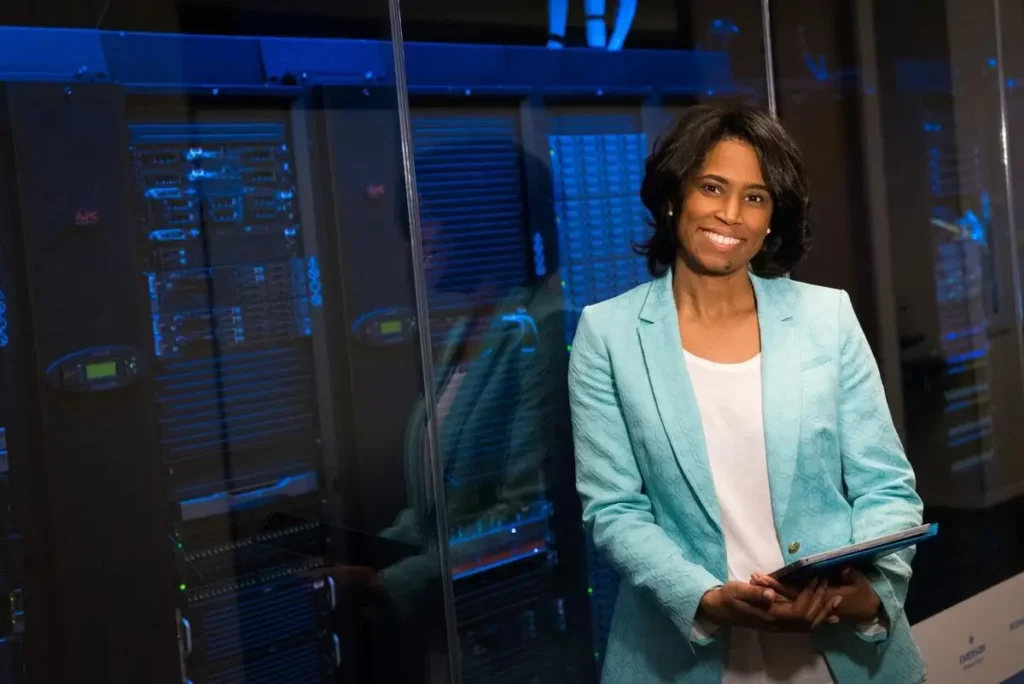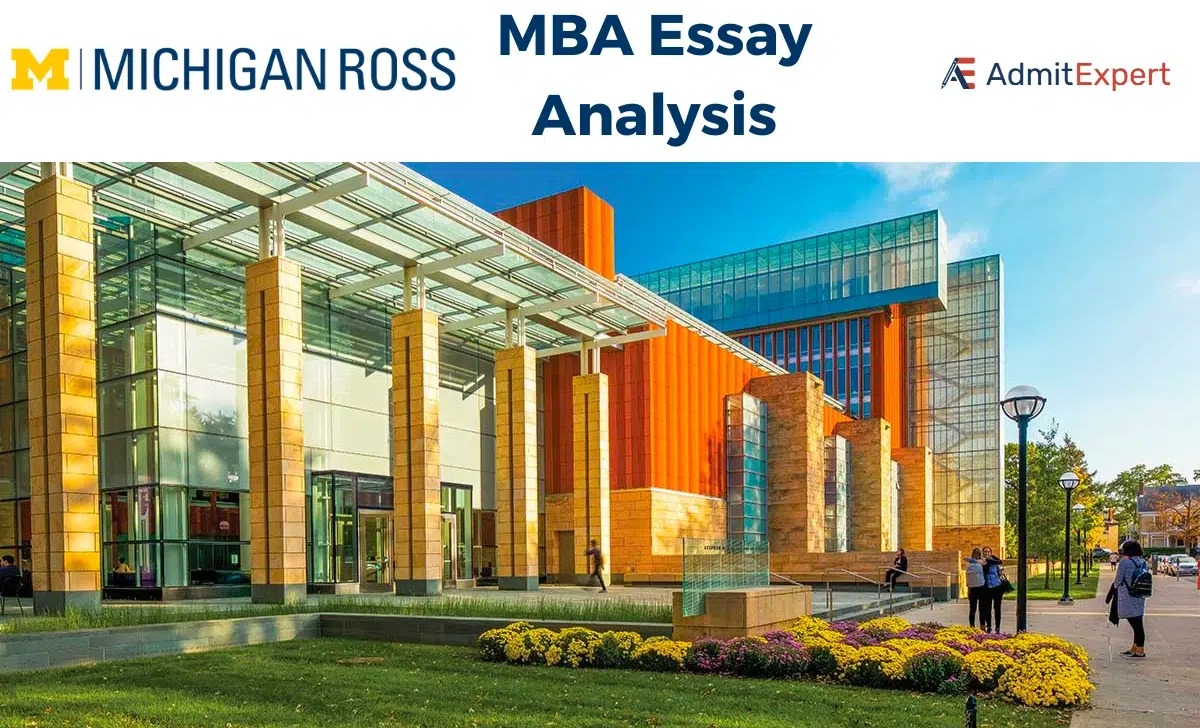If you are in your 30s and considering applying to an MBA program, you wouldn’t be the first. A lot of MBA applicants are already mid-career, well into their late-20s, if not early 30s. But there is a lot to consider before applying to business school. Apart from the life stage, you are currently in, there are many factors that you must look at so that when you do apply for an MBA after 30, you are 100% sure of its purpose and ability to propel your career forward.

Why an MBA now, in your 30s?
There are many reasons that people apply to B-schools in their 30s and not sooner. Nowadays, an MBA seems like a few steps further, after one has acquired a decent amount of work experience and found their footing in one industry or the other.
- Career Upgrade: You might be in a mid-management position already, but want to transition to a senior or partner position. An MBA would help facilitate that transition, by bridging the knowledge and skill gaps between where you are right now and where you want to go.
- Life Stage: It is possible that you have reached a point in your life, where you’ve managed to achieve a few of your short-term goals, which have facilitated a more stable and settled lifestyle, with regard to your professional and personal life. So it can also be the ideal time to invest in an MBA degree because you can afford it and it will only enhance the way you work and live.
- Entrepreneurial Venture: After having accumulated years of experience, industry knowledge, and business acumen, you have finally decided to embark upon a project of your own, which you would be heading yourself. The transition from a corporate work structure to an entrepreneurial one can be drastic, so an MBA could prepare you for what entrepreneurship entails, and give you a solid foundation for starting your own business venture.
- Salary Upgrade: It is widely known that job applicants with an MBA degree are automatically placed in a significantly higher salary bracket versus those who do not have one. So if you have already got an undergraduate degree in civil engineering and seek a pay raise, an MBA not only strengthens your knowledge in your specialized field but also your leadership, strategy, and innovation skills. And that’s why you deserve the big bucks.
- Work Requirement: Some working professionals excel in their jobs and end up getting promoted quicker than the normal time period it would take. They are offered more responsibilities, accounts, and clients. Also likely is that they are naturally fit for leadership. So the only thing that lacks in this picture is an MBA that would match the job position offered to this employee. An MBA offers academic credibility, which, in turn, translates into reliability, especially when directly dealing with clients.
Factors to consider when doing an MBA after 30
Make sure there is sufficient prep time, before applying for an MBA. There are many things to consider, given that the next couple of years will be devoted to academics and the rest of your life (professional or personal) will be on pause. If there are other people, who are an integral part of your life, then you need to consider where and how they will be without you. A lot of preparation has to be undertaken before you apply to any business school, let alone the research you’ll have to do in order to find the right business school for you. Here are some factors you need to consider, before hitting that ‘Apply Now’ button.
- Time: Time is something we all need and seldom have enough of. So delaying your MBA may have proved beneficial because you gain experience and practical knowledge, which you can bring to your MBA class projects later on. It also gives you time to build your personal life and relationships and possibly find some grounding versus being constantly stimulated in your 20s, from challenge to challenge. The downside here is that an MBA in your 30s involves time away, leaving your personal and professional commitments behind, and pursuing further studies for the next 1 to 2 years. That much time can be valuable to someone who is already mid-career and could either make or break it.
- Health: Having had time to grow and gain exposure to different areas of life, be it travel, work, entertainment, relationships, and more, people in their 30s have accumulated enough knowledge and experience that makes them more mature. This is an advantage in times of crisis or making tough decisions. It also helps when one has to face criticism and unexpected challenges. Having said that, people in their 30s also have more financial responsibilities, personal commitments, and daily pressures. Signing up for an MBA at this time may be harder than when you were in your 20s, in terms of coping with pressure. However, the self-awareness you gain as a 30+ year old is what can help you balance your mental and physical health with your academics.
- Academic Readiness: Your academic readiness refers to your ability to ‘get through’ the rigorous MBA curriculum. A GMAT/GRE score is a good way to prove that you are ready for getting into academic mode.
- Career Path: Doing an MBA in your 30s can make sense if you are looking for an upward shift in your existing field. For example, if you are in the IT department of a company, you could progress to having your own IT consultancy business. If you are a doctor, you could use your MBA in creating your own hospital management niche. However, doing an MBA in your 30s also means you may not get as many opportunities for new industries or career paths, so starting from scratch can be challenging at that age.
- Salary Upgrade: An MBA is a guaranteed method of upgrading your salary bracket. In fact, this is one of the main reasons many people apply for an MBA. While this is a highly considerable advantage to investing in an MBA, consider the costs of studying. This not only includes tuition fees and cost of living but also opportunity cost. The years spent away at business school can cost you growth opportunities at the workplace, possible promotions and added benefits, and even your job.
- Networking Opportunities: The networking opportunities one gains from doing an MBA are incredible. You participate in problem-solving projects for real-life industry challenges, and can potentially create a lasting impression on the business schools’ official partners, collaborative companies, and recruiters. However, as you build a new network of global leaders, changemakers, and disruptors, you must remember to maintain your already-existing network, by engaging with them on fresh topics that you may study during your course.
Preparing for the MBA after 30
Impress the Adcom
Now that you have finalized your decision in pursuing an MBA, it’s time to put your best foot forward. When putting together your MBA application, you will be required to provide academic records, professional credentials, achievements, letters of recommendation, essays or statement of purpose, additional documents (published work, awards, noteworthy accomplishments), as well as your capacity to fund your education. So while you collect all the necessary data, use the following factors to determine how you want to position yourself as an MBA candidate.
Academic Readiness
While different business schools may have different criteria for eligibility, it is important to note that your scores must be of a certain level to be considered ready for academics. Once you have your scores in place along with certificates and transcripts, add any awards received in school or at work, your updated resume, and any press coverage or published works that you have contributed to or created yourself.
Career Goals
Before you choose an MBA specialization or a business school of your liking, take some time to define your career goals. Start from where you currently are, and chart out where you would like to be in the next few years, as well as the next decade. This will help you find your specialization by understanding how it helps you achieve those goals. Will an MBA in Marketing help you transition from being a marketing executive in a digital marketing company to running your own marketing consultancy? Would it further help you create your own brand? These are valid questions to ask yourself, so that you can choose the right line. This, in turn, will also offer clarity to the admissions committee as to why you wish to pursue an MBA.
Experience
Your essays and letters of recommendation are the greatest opportunities you will get to show the admissions committee who you really are and what you stand for. This is where your personality can shine, through experiences, anecdotes, and testimonials. Consider your story from work and other impactful activities, and incorporate all the impressionable moments, mentors who left a mark, and the values you developed over time, which contributed to your professional success and growth. Remember to include all these things in your application, so that your admission into a business school not only benefits you but also benefits your peers in class.
According to the admissions committee at Tuck, the application process is age-blind. So instead of being shadowed by younger candidates, use your age to your advantage. Your accumulated years of solid experience are ideal fodder for your essays, and you can use examples from your own life, which led to professional accomplishments, awards, leadership roles, and accolades. To be a unique MBA candidate, you must refer to your unique experiences and weave your story around them. This will give your MBA network the opportunity to gauge your eligibility based on the added years of work experience, converting your older age into a huge advantage.
Get back into Study Mode
Consider inculcating some habits to prepare you for your studies. This could involve completing small tasks every day like doing some research and writing a short essay on any given topic. Take time out for recreational activities that can help you unwind mentally and physically. Start sleeping and eating on time, if you don’t already have a strict regimen. Consider researching your professors and reaching out to them personally by email to understand what to expect and be mentally prepared for it. Arm yourself with notebooks, extra stationery, a laptop, and enough charging stations for all your gadgets. Remember, you may not be allowed to Google everything and would actually have to apply your brain during class. It’s like stretching stiff muscles. So start stretching sooner than later.
Financial Planning
Your finances will definitely take a hit if you go do an MBA in your 30s. People are still building their financial safety net in their 20s, so while it is going to be an expensive venture at any age, by the time you are in your 30s, you have more financial responsibilities than you did in your 20s. Perhaps, you had already saved enough funds to embark on this academic journey, but in case you haven’t it’s a good idea to revise your budget, research different colleges based on that, find out if there are scholarships available, and also create an expense sheet that could give you an estimate of how much it would cost to do an MBA at this point in your life – this entails tuition fees, added academic fees for logistics, study material, etc., cost of living, transport, and food, as well entertainment and recreational costs. Research the cost of living, gas, coffee and a sandwich, photocopiers and printers, stationary and housing supplies in the city, where you will be studying. Based on those costs, you’ll be able to build a financial plan that is manageable.
B-school Considerations for MBA after 30
Average Age Range in B-schools
The average age of MBA students is 28 years. Having said that, it is important to note that the age range for MBA applicants has shifted considerably to the later years versus early 20s. While business schools do not discriminate in a classroom between younger and older students, you might feel hesitant to apply, wondering if you would ‘fit in’, fully relate to your classmates, and participate in activities. The good news is that there are business schools that have a higher intake of students above 30 years of age, so you need not feel out of place.
Is an MBA the only option?
While doing your MBA irrespective of your age is not necessarily a bad decision, it is important to find out if it is the right degree for you. Embarking on a full-time MBA means taking out two years of your life, leaving your profession and family behind, being a student after a long gap, and also spending a lot of money. So you need to make sure that the ROI is exactly what you are looking for. Ask yourself if doing an MBA will help you get ahead in your career or perhaps offer a platform to launch it. Is an MBA the only way to get to where you need to be professionally? Are there alternative postgraduate programs that are better suited to your academic and career goals?
Full-time MBA: 1 vs 2 years
While a full-time MBA lasts 2 years, there is also an option of an extensive 1-year full-time MBA for working professionals, who are in their 30s and wish to stay away from their paying jobs for a short time. An added bonus is that it also reduces your costs i.e. tuition fees, cost of living as well as opportunity costs.
Working while you study
If you plan to work, while you are enrolled in an MBA program, be sure that you are not biting off more than you can chew. Having said that, there are quite a few MBA applicants, who manage to successfully juggle both their MBA study time and job responsibilities. A good way to maintain both would be to create separate times tables for work and school, so you know how much time to commit to either at any given point in the day. By balancing your bandwidth between school and work, you can retain your job (albeit remotely or part-time), while also upskilling simultaneously.
Final Thoughts
It may seem daunting at first, becoming a student again, after so many years. But when you finally take the plunge, you’ll find your feet soon enough. An MBA after 30 can be a vital tool in helping you take that next step in your career. And even though you might feel like it’s a stretch, it is never too late to go back to school.




